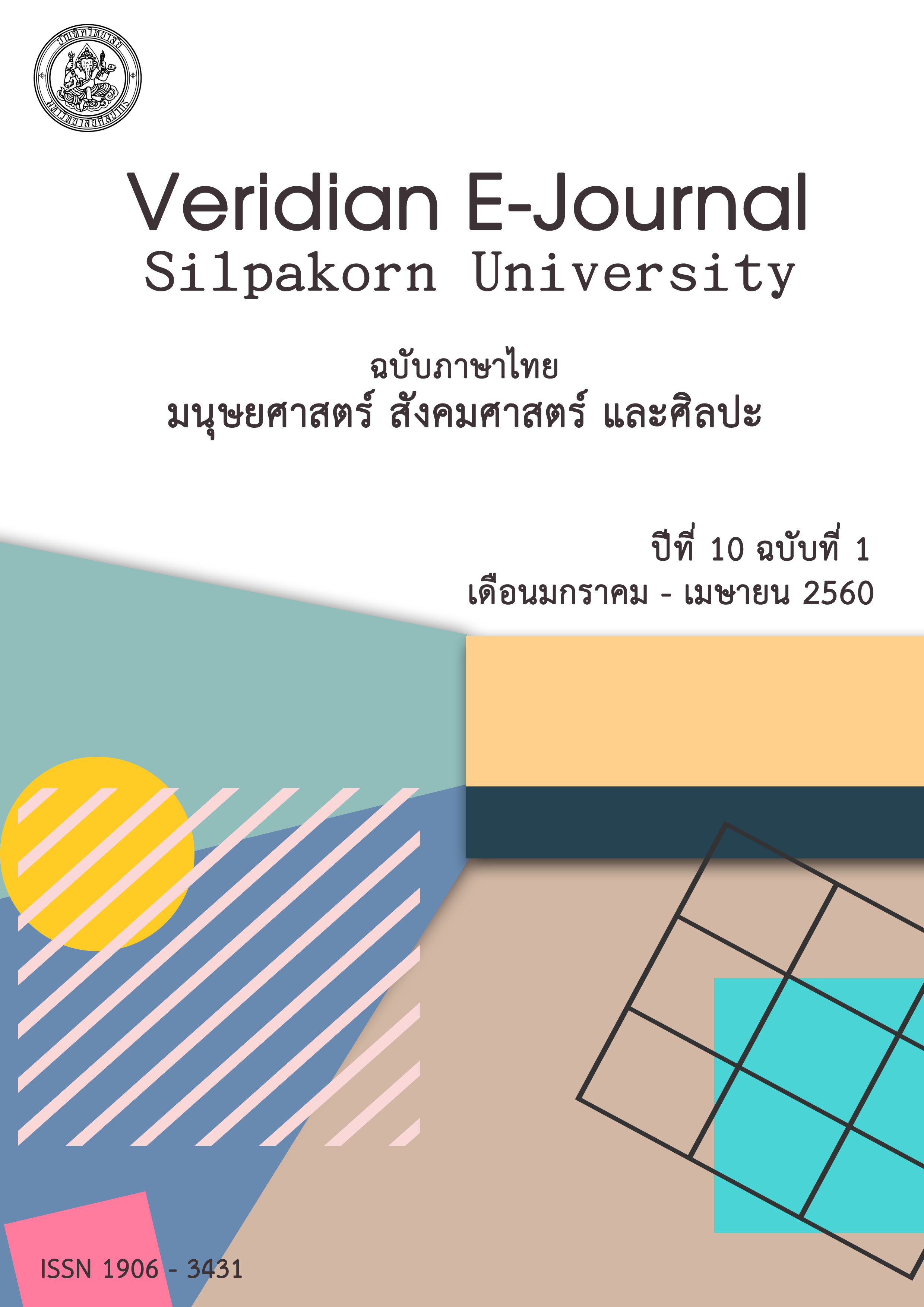การพัฒนากระบวนการเรียนการสอนภาษาอังกฤษตามทฤษฎีเครือข่ายศัพท์และกลวิธีคิว เอ อาร์เพื่อส่งเสริมความรู้ในศัพท์ของนักศึกษาในระดับอุดมศึกษา
Main Article Content
บทคัดย่อ
การวิจัยและพัฒนาครั้งนี้มีวัตถุประสงค์เพื่อพัฒนากระบวนการเรียนการสอนภาษาอังกฤษตามทฤษฎีเครือข่ายศัพท์และกลวิธีคิว เอ อาร์เพื่อส่งเสริมความรู้ในศัพท์ของนักศึกษาในระดับอุดมศึกษาและศึกษาผลของการใช้กระบวนการเรียนการสอนที่พัฒนาขึ้น โดยการทดลองใช้แผนการจัดการเรียนรู้จำนวน 10 แผน กับนิสิตมหาวิทยาลัยเกษตรศาสตร์ วิทยาเขตกำแพงแสน จำนวน 30 คน เป็นเวลา 30 ชั่วโมง เครื่องมือที่ใช้ในการเก็บรวบรวมข้อมูลได้แก่ แบบทดสอบวัดความรู้ในศัพท์ซึ่งเป็นแบบทดสอบแบบปรนัย 4 ตัวเลือก จำแนกเป็น 2 ตอน ได้แก่ แบบทดสอบความสามารถในการระบุประเภทของศัพท์และแบบทดสอบความสามารถในการระบุความหมายต้นแบบของศัพท์
ผลการวิจัยสรุปได้ดังนี้ 1. กระบวนการเรียนการสอนภาษาอังกฤษตามทฤษฎีเครือข่ายศัพท์และ กลวิธีคิว เอ อาร์เพื่อส่งเสริมความรู้ในศัพท์ของนักศึกษาระดับอุดมศึกษาประกอบด้วยขั้นตอน 3 ขั้นตอนได้แก่ ขั้นสร้างความสนใจ, ขั้นสำรวจและสร้างเครือข่ายศัพท์ และขั้นนำศัพท์ไปใช้และตรวจสอบตนเอง 2. ผลการศึกษาประสิทธิภาพของการใช้กระบวนการเรียนการสอนที่พัฒนาขึ้นพบว่า กลุ่มทดลองมีคะแนนเฉลี่ยด้านความรู้ในศัพท์หลังการทดลองสูงกว่าก่อนการทดลองอย่างมีนัยสำคัญทางสถิติ (p<0.01) อีกทั้งคะแนนเฉลี่ยด้านความรู้ในศัพท์หลังการทดลองของกลุ่มทดลองสูงกว่ากลุ่มควบคุมอย่างมีนัยสำคัญทางสถิติ (p<0.01) ทั้งในด้านความสามารถในการระบุประเภทและความหมายต้นแบบของศัพท์
The purposes of this research and development were: 1) to develop an English instructional process based on lexical network theory and QAR strategy to enhance lexical knowledge of higher education level students, and 2) to study the effectiveness of the developed process by using 10 lesson plans with 30 students of Kasetsart University Kampaengsaen campus in 30 hours. The instruments used in this research was lexical knowledge pre-and post- tests in multiple choice divided into 2 parts 1) the part of speech identification test and 2) prototypical senseidentification test
The research results could be summarized as follows: 1) The process consisted of 3 stages, including (1) Engagement stage, (2) Exploration and lexical network building stage, and (3) Independent application and self-evaluation stage, and 2) the results of the effectiveness of the developed processdemonstrated that there was a significant difference between the pre-test and the posttest mean scores of the lexical knowledge of the experimental group (p<0.01).Further, the results revealed that the lexical knowledge post-test scores of the experimental group were significantly higher than those of the control group (p<0.01) for both the identification of part of speech and prototypical sense.

